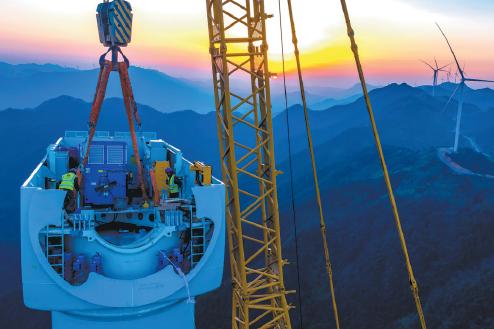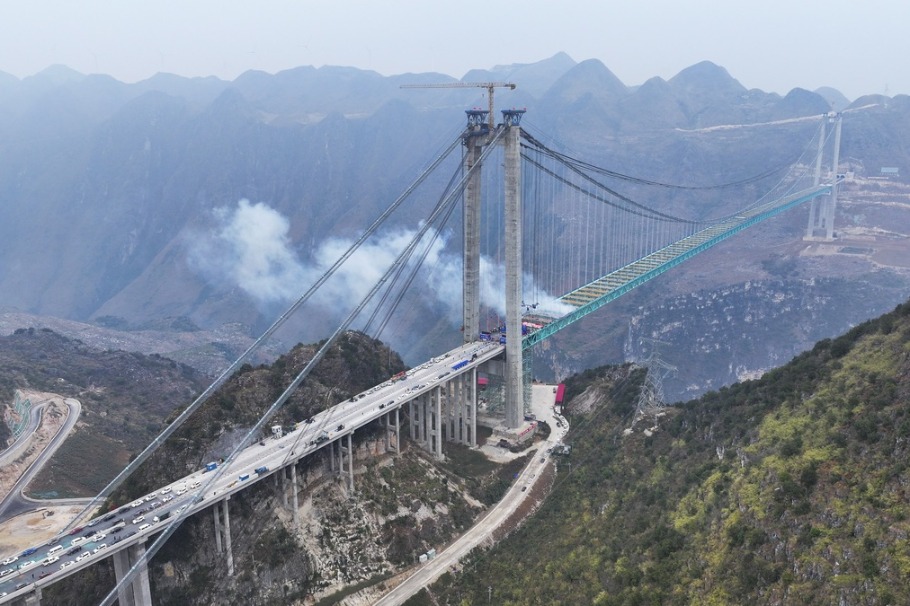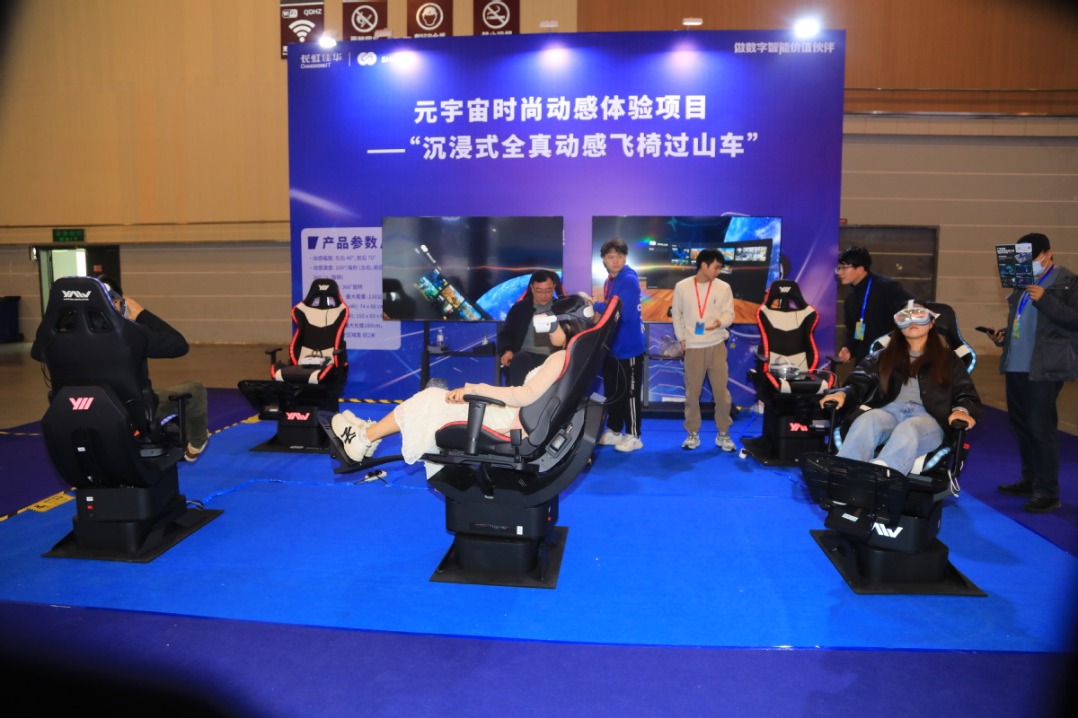Economic work conference gives HK confidence, hope


The annual Central Economic Work Conference (CEWC) was held in Beijing on December 16. As always, the CEWC reviewed the year's economic development and planned for the next year (2021). However, 2020 has been an extraordinary year to say the least, with a global pandemic of a century still raging around the world as we speak, thus accelerating the paradigm shift of an era in global power balance. Let's not forget this is also the year the nation of 1.4 billion winds up efforts to achieve one of two centenary goals in order to begin the journey toward another centenary goal in 2021.
As the year 2020 nears the end, we see Western developed countries in general are still struggling to control the spread of the COVID-19 pandemic and unable to recover from their economic doldrums caused by the pandemic. In sharp contrast, China has successfully built up a nationwide intuitive system of outbreak prevention and an emergency response mechanism to stop any imported viral infection or local rebound from spreading on the mainland. That is why the mainland is the only major economy in the world to have achieved positive growth this year.
The COVID-19 global pandemic is a monumental test of integrity for countries of different social systems in terms of core values as well as government leadership. So far it has been evident beyond reasonable doubt that China's socialism with Chinese characteristics, coupled with the effective leadership of the Communist Party of China (CPC) and the Chinese people's commitment to the collective well-being of the nation, is superior when it matters the most.
If Hong Kong society cannot even accept a much-needed healthcare system reform when its economic recovery is at stake, it has little if any hope of turning things around in 2021 if the COVID-19 pandemic remains rampant despite citywide vaccinations
Hong Kong, as a special administrative region of China, has failed to achieve the same success in containing the pandemic and economic recovery as the motherland did. In fact, it has been severely impacted by the fourth surge of infections so far in the fourth quarter of 2020; while its economy has remained in a dire slowdown for seven quarters and is on the verge of depression. The SAR government and people from all walks of life must ask themselves the simple question: "What exactly went wrong to leave Hong Kong in such a sorry state?" I believe the true cause of this monumental failure is that many people in Hong Kong are so blindly faithful to the capitalist system brought by the British rulers of yesteryear they cannot even bear the thought of following the mainland example in conducting universal compulsory SARS-CoV-2 nucleic acid testing for all local residents and implement the health code system that has proved effective on the mainland in helping people adapt to the post-pandemic new normal despite isolated resurgences of COVID-19 infection. Besides, measures such as universal compulsory testing and the phone-based health code system are merely means to augment Hong Kong's public healthcare system in response to a global pandemic rather than change its capitalist system. If Hong Kong society cannot even accept a much-needed healthcare system reform when its economic recovery is at stake, it has little if any hope of turning things around in 2021 if the COVID-19 pandemic remains rampant despite citywide vaccinations.
On the other hand, once the SAR government makes up its mind and focuses on effectively containing the spread of COVID-19 as soon as possible, Hong Kong will very likely be able to reopen its boundaries with the mainland and resume near-normal personnel exchanges for speedy recovery of some if not most of its pillar industries, especially its burgeoning tech and innovation sector, which relies heavily on cooperation with its mainland counterpart and development opportunities in the Greater Bay Area (GBA).
The CEWC put forward eight major tasks to accomplish next year. The first one is to strengthen the country's strategic technology capabilities, followed by enhancing independent control over its industrial chains and supply chains. Both are thoroughly in keeping with the principle of empowering the nation with science and technology.
This year China made some outstanding achievements in technology and innovation. For example, the indigenous manned deep-sea probe Fendouzhe reached the deepest point in the Mariana Trench, more than 10,000 meters under the Pacific Ocean, multiple times, setting a new national record in manned deep dives. Scientists at the Institute of Mechanics of the Chinese Academy of Science successfully developed and tested a groundbreaking hypersonic engine that can fly at 16 times the speed of sound, or reach any place in the world within two hours. The University of Science and Technology of China built a photon-based quantum computer and solved a very complicated mathematical problem called boson sampling in 200 minutes that will in theory take the fastest conventional supercomputer in the world today 100 trillion times as long to complete. In Chengdu, the capital of Sichuan province, a next-gen nuclear fusion experimental device called "HL-2M", aka "artificial sun", went into operation and produced plasma discharge for the first time, paving the way for future advanced research in nuclear fusion technology. Just last week the third stage of China's lunar exploration program was complete after the Chang'e 5 spacecraft successfully soft-landed in a pristine region of the Moon, collected more than 1,700 grams of lunar soil sample and brought it back home on Earth, another emphatic step toward becoming a global tech power.
Particularly worth celebrating is that the lunar soil sample-collecting device installed onboard Chang'e 5 was developed by a team of scientists and engineers at the Hong Kong Polytechnic University, who spent 10 years designing and testing the sample collector, which consists of a drill and a scoop. It proves Hong Kong's research talents are capable of contributing to the nation's sci-tech advancement despite political distractions such as "Occupy Central" in 2014 and the "black revolution" last year. Their professional and patriotic integrity is outstanding and will go a long way in sustaining Hong Kong's tech-innovation development in the years to come.
It should be noted that the country's socialism with Chinese characteristics works for the mainland because it combines effective market economy and responsible government. It allows the central government to mobilize enterprises and people from all walks of life to achieve national strategic objectives through industry-university-research academy collaboration without losing respect for the laws of the market economy. In addition to nationwide efforts on major breakthroughs, it also maintains opening up to the outside world to attract talents as well as investment from overseas to fuel tech-innovation development. The R&D team at Polytechnic University of Hong Kong became an important part of the Chang'e 5 Project and proved Hong Kong can play a significant role in the country's tech-innovation system.
In a word, the annual CEWC can be seen as a source of confidence in and hope for a speedy resumption of personnel exchange with the mainland so that Hong Kong can effectively stop COVID-19 from spreading, jump-start its economic recovery and further integrate its own development into the overall development strategy of the country.
The author is a senior research fellow of China Everbright Holdings.
The views do not necessarily reflect those of China Daily.
































